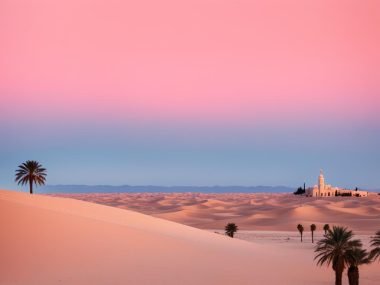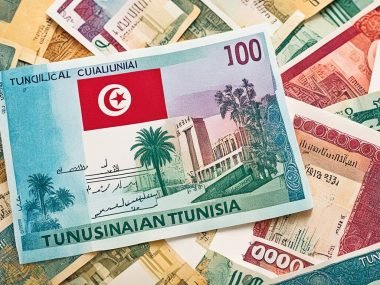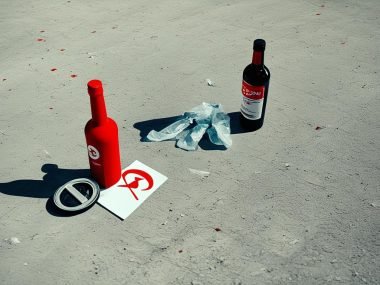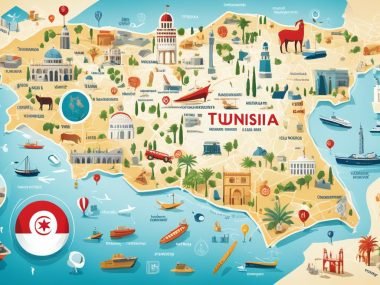Tunisia has huge phosphate reserves, around 3,000 million metric tonnes. It’s one of the biggest producers worldwide. This country is also famous for its culture and tourism. Besides phosphate, Tunisia has many other natural riches.
The country has lots of minerals like zinc, lead, barite, and iron. Its land is very fertile, helping the agriculture to grow. Foods like olives and dates are big exports. Tunisia’s beautiful places and beaches also attract many tourists.
Key Takeaways
- Tunisia possesses one of the largest phosphate reserves in the world, estimated at 3,000 million metric tonnes.
- The country’s diverse natural resources include significant deposits of zinc, lead, barite, and iron.
- Agriculture plays a crucial role in Tunisia’s economy, with olives and dates being key export products.
- Rich natural landscapes and beautiful beaches support a thriving tourism industry.
- Tunisia continues to leverage its natural assets to boost economic growth and global trade.
Introduction to Tunisia’s Natural Resources
Tunisia has many natural resources that help its economy grow. Finding oil at El-Borma in the 1960s was a big deal. Although its oil isn’t as much as some neighbours, it’s very important for the economy. It attracts attention from inside and outside the country.
The country doesn’t have a lot of petrochemical resources. So, it buys petroleum products from other places. This is because it can’t refine enough oil itself. At the same time, Tunisia is doing well with natural gas. Thanks to British help in the Miskar field in the 1990s, it’s getting better at this.
Tunisia is also looking into renewable energy a lot. With a strong push for green living, it’s working on solar and wind energy. These projects take advantage of the rich renewable resources Tunisia has.
But there’s more to Tunisia’s sea than just beauty. The Mediterranean Sea is very important for fishing. This supports a big part of Tunisia’s economy. So, the sea not only attracts tourists but also provides valuable resources.
- Tunisia oil reserves marked by the El-Borma discovery in the 1960s.
- Domestic consumption rise leading to petroleum product imports.
- Natural gas production driven by British investments in the Miskar field.
- Rich Tunisia Mediterranean Sea resources supporting a thriving fishing industry.
- Expansion into Tunisia renewable energy with solar and wind projects.
Phosphate: Tunisia’s Major Mineral Export
Tunisia’s phosphate plays a key role in its mining sector. It is a big export for Tunisia. Much of it goes to global markets. Some supports local chemical industries. This shows how vital Tunisia’s phosphate is for its economy.
Current Production and Export Statistics
Recent numbers show Tunisia’s strong phosphate production. Yet, it faces ups and downs. This is due to world market changes and internal issues. Each year, Tunisia adds a lot to the world’s phosphate supply. Here’s a closer look:
| Year | Production (Million Tonnes) | Exports (Million Tonnes) |
|---|---|---|
| 2018 | 3.5 | 2.0 |
| 2019 | 3.3 | 1.8 |
| 2020 | 3.8 | 2.1 |
| 2021 | 3.7 | 2.0 |
Economic Impact of Phosphate Mining
Phosphate mining means a lot to Tunisia’s economy. It’s a big part of Tunisia’s exports. The sector helps pay for big projects. It also helps the country try new things. Phosphate mining creates jobs. It also helps other industries grow and get better.
In short, Tunisia’s phosphate is very important. It’s more than just mining. It helps the whole country grow and do well.
Tunisia’s Oil Reserves
Tunisia found oil at Al-Burmah. This discovery is key in Tunisia’s energy area. Many oil places, especially near Algeria, show Tunisia’s big investment in oil. Even with a drop in the 1980s, the 1990s brought new interest and drilling. This long-term plan helps keep production going.
Tunisia gets a lot of crude oil from certain areas. These areas have been drilled many times. This work helps manage the petroleum reserves well. It keeps Tunisia important in the oil world.
“Tunisia’s oil places, especially those near the Algerian border, are doing well. They will produce oil for many years.”
Here’s a summary of the main oil spots:
| Oil Field | Initial Discovery Year | Estimated Reserves (Million Barrels) |
|---|---|---|
| Al-Burmah | 1964 | 450 |
| El Borma | 1966 | 180 |
| Ashtart | 1971 | 125 |
| Hasdrubal | 2000 | 70 |
Tunisia plans its crude oil and petroleum reserves well. This shows Tunisia’s promise for a secure energy future. After the 1980s dip, the 1990s saw a big return. Tunisia adapts well to manage its resources.
Natural Gas Production in Tunisia
Tunisia has seen a big rise in natural gas production. This is thanks to its goal to be energy independent. Finding and using natural gas fields has been key to meet its energy needs.

Key Natural Gas Fields
The Miskar field has been a big deal in Tunisia’s energy work. With help from abroad, these fields have boosted gas production. Miskar is special because it has a big set-up for taking gas out.
Economic Contributions of Natural Gas
Natural gas production has helped Tunisia’s economy a lot. Money from pipelines goes back into making more energy. This money helps to run power plants across Tunisia.
This doesn’t just bring in money. It also keeps electricity prices stable and ensures homes and businesses have power. More energy generation shows how key natural gas is for Tunisia.
Agriculture in Tunisia: Arable Land and Key Crops
In Tunisia, farming is very important for the country’s economy. About 64.8% of the land is for farming. This shows how important farming land is for Tunisia’s agriculture.
Tunisia agriculture remains an essential pillar of economic stability, contributing substantially to the GDP and supporting a large segment of the workforce.
Olives are very important in Tunisia, being a big export. Fruits and vegetables are also grown. This makes the most of the fertile land. Tunisian farming methods keep getting better. This boosts output and efficiency.
| Category | Details |
|---|---|
| Agricultural Land | 64.8% of total land |
| Key Crops | Olives, citrus fruits, dates, grains |
| Economic Contribution | Substantial share of GDP |
| Workforce | Significant portion employed in agriculture |
Good farming practices have increased farmable land. This lets Tunisia grow more food. They keep investing in farming to stay strong and productive, despite the challenges.
Tunisia grows many kinds of crops. This is good for both eating in Tunisia and selling to other countries. Farming is very important for Tunisia’s money and food.
The Role of Olive Oil in Tunisia’s Economy
Olive oil is very important for Tunisia’s economy. It helps with farming and making money from selling abroad. Tunisia’s good weather and lots of farmable land make it a top producer.
Olive Production Statistics
Tunisia has over 80 million olive trees. These trees take up more than 30% of its farming land. This means a lot of jobs for people, with over one million working in oltras.
Export Value of Olive Oilclass=”hoverIntent:preserveIntent”>
Tunisia is a big player in selling olive oil worldwide. Olive oil is one of its top exports. It makes a lot of money for the country. This shows how key olive oil is for Tunisia’s money matters.
Tunisia’s Mineral Wealth Beyond Phosphate
Phosphate often gets all the attention in Tunisia. But there’s much more beneath the surface. The country is also home to zinc, lead, iron ore, and barite.
Zinc and Lead Resources
Zinc and lead are big deals in Tunisia’s mineral wealth. They are mainly found in the north-west. Places like Jebel Ressas and Douahria mines are important for them. Zinc and lead are used in batteries, alloys, and coatings.
Iron Ore and Barite Deposits
Iron ore is key in Tunisia, too. The Menzel Bourguiba site shows the iron ore’s value. Barite is found mainly in the south. It’s used in oil and gas drilling fluids.
| Mineral | Main Locations | Uses |
|---|---|---|
| Zinc | Jebel Ressas, Douahria | Batteries, alloys, coatings |
| Lead | Jebel Ressas, Douahria | Batteries, radiation shielding |
| Iron Ore | Menzel Bourguiba | Steel production |
| Barite | Southern regions | Drilling fluids |
Fishing Industry: Rich Resources from the Mediterranean Sea
Tunisia’s long coastline helps its big fishing industry. The Mediterranean Sea’s rich waters give lots of marine biodiversity. This diversity adds a lot to Tunisia’s catch. This includes both freshwater fish and sea creatures.

Stats from the early 2000s show the industry’s big role in Tunisia’s economy. The fish industry’s success is important economically. But there are problems. Illegal fishing and weak aquaculture are big challenges. These issues need fixing to make the most of the sea’s riches.
Here’s some key data on the Tunisia fishing industry:
| Year | Catch Volume (Tonnes) | GDP Contribution (%) |
|---|---|---|
| 2000 | 85,000 | 4.2 |
| 2005 | 90,000 | 4.5 |
| 2010 | 92,500 | 4.6 |
To boost the industry, tackling illegal fishing is key. Also, better farming of fish can help a lot. Using sustainable methods is essential. It will guide the future growth of Tunisia’s fishing industry.
Emerging Renewable Energy Potential in Tunisia
Tunisia is starting a big change in energy, with a focus on renewable energy. The country is spending a lot on solar and wind energy. This is to meet its needs and help the planet.
Solar Power Investments
Solar power is key in Tunisia’s renewable plans. The Tunisian Solar Plan will use lots of sunlight for clean energy. This will make energy use better and create jobs.
| Solar Projects | Capacity (MW) | Completion Date |
|---|---|---|
| Tunisian Solar Plan | 200 | 2025 |
| Solar PV Programme | 500 | 2027 |
Wind Energy Projects
Tunisia is also putting money into wind energy projects. This is to have more kinds of renewable energy. The Sidi Daoud wind farm is growing to make more clean energy.
| Wind Projects | Capacity (MW) | Completion Date |
|---|---|---|
| Sidi Daoud | 120 | 2023 |
| Bizerte Wind Farm | 150 | 2024 |
Tunisia is really working on solar and wind energy to change its energy use. This shows Tunisia wants a green and sustainable future.
Environmental Challenges Impacting Tunisia’s Natural Tourism
Tunisia is known for its beautiful natural sights. But, it faces big environmental problems. These issues, like waste and pollution, hurt its natural beauty.
This is a big problem since tourism relies on keeping nature safe. Keeping natural resources safe is key.
One big issue is not having enough freshwater. This makes it hard for people and nature to thrive. Also, cutting down trees and soil erosion are damaging nature. This makes it hard for tourists to enjoy green places.
We must manage natural resources well to solve these issues.
Climate changes also lead to more desert land. This threatens Tunisia’s beautiful places. It’s important to manage ecosystems well to fight this.
Thinking about these issues shows we need to find lasting solutions. We must work to keep Tunisia’s natural beauty. This will help tourism grow in a healthy way.
What Natural Resources Does Tunisia Have?
Tunisia has many natural resources. These resources are very important for its economy. Phosphate, oil, and natural gas are key to Tunisia’s growth. Natural resource utilization and environmental sustainability are important for the country’s future.
Phosphate mining is a big deal in Tunisia. It helps the country earn a lot from exports. Oil and natural gas also play huge roles. They add variety to Tunisia’s economy and are vital for energy.
The country is also known for its olive oil. Tunisia is one of the leading exporters of this product. The fishing industry benefits from the rich waters of the Mediterranean Sea.
Tunisia is working on renewable energy too. Projects in solar and wind energy are taking off. These efforts help reduce reliance on other energy sources. They also support the environment’s health for years to come.
| Natural Resource | Contribution to Economy | Importance |
|---|---|---|
| Phosphate | Major export, revenue driver | High |
| Oil | Diversifies economy, energy source | High |
| Natural Gas | Energy production, economic input | High |
| Agriculture | Olive oil export, food security | High |
| Fishing | Marine resource utilisation | Moderate |
| Renewable Energy | Environmental sustainability, future potential | Increasing |
Conclusion
Tunisia is rich with minerals, good farm land, and new energy projects. These resources help Tunisian economy grow. They are important for both today and the future.
The country is famous for phosphate. This makes Tunisia stand out in the world. Oil and gas also play a big part in its economy. Olive oil from Tunisia is known for its quality and is sent to many countries.
Tunisia has a big fishing industry because of its Mediterranean coast. It is also focusing on solar and wind energy. Tunisia wants to use its resources wisely and in a way that’s good for our planet.
Tunisia’s future depends on being sustainable and trying new ways to grow. By doing this, it can support its people today and protect the environment for tomorrow. This way, Tunisia can look forward to a bright future.
Source Links
- https://www.britannica.com/place/Tunisia/Resources-and-power – Tunisia – Oil, Phosphates, Tourism
- https://www.worldatlas.com/articles/what-are-the-major-natural-resources-of-tunisia.html – Natural Resources Of Tunisia
- https://greenfiscalpolicy.org/policy_briefs/tunisia-country-profile/ – Tunisia – Country profile | Green Fiscal Policy Network







